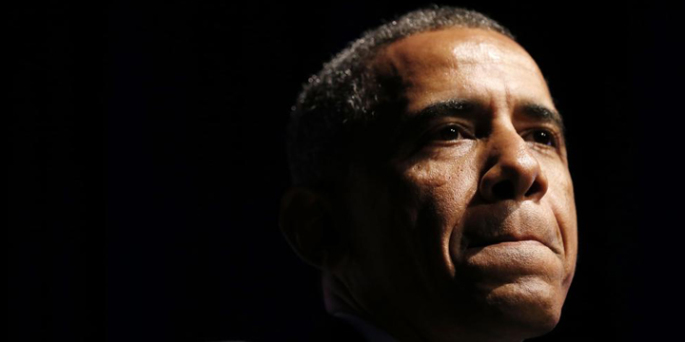
Obama on the final stretch
HAVANA — Obama has entered the final stretch of his presidential career and the initial boost has been the executive decision to reform the current immigration policy, as it affects illegal immigrants.
Although evidently these measures don’t resolve the problem in its essence, their benefits affect about 5 million people and have been perceived by many, in the U.S. and elsewhere, as a brave, humane and intelligent act that serves to improve the president’s battered image.
The decision is also a political measure that could indicate the pattern of government that will rule the United States in the next two years. The executive power will be confronted by a Republican majority in both houses of Congress, which will try to thwart any legislative initiative the administration undertakes.
Such a degree of polarization will greatly hinder the coherence of U.S. policy, both domestically and abroad. To this will be added the interest of both parties to position their candidates and respective agendas with a view to the 2016 presidential election.
In that sense, immigration reform is not detached from the Democrats’ desire to satisfy the claims of an electorate that supports those measures — mainly Latinos themselves, who in the past election demonstrated once again their majority support for the Democratic Party, as well as other sectors of U.S. society who support the reform for humanitarian, ideological and even economic reasons.
Undoubtedly, immigration reform will have an impact on U.S. policy toward Latin America, given the enormous tensions involved in illegal emigration from several Latin American countries. This, in turn, will echo in the intention of the Latinos’ vote, due to the growing interest they demonstrate in the policy toward their own homelands, in correspondence with the transnational nature this immigration flow has acquired.
The best example of this is the Cuban immigration. U.S. policy toward Cuba has always been a central theme in the attitude of the Cuban-American electorate and, although some consider that that interest has dwindled as a result of the social changes in Cuba, nobody can say with any assurance that Cuban-Americans are now indifferent.
In the past, that interest was expressed from the most hostile positions and it was a well-known fact that any candidate who wished to capture the Cuban-American vote — whether he was Republican or Democrat, at local or national level — would harden his speech and promised to act forcefully “to end with Castro’s government.”
Things now are quite different. It has been demonstrated that a growing majority of the Cuban-American voters support an improvement in relations with Cuba, and that has been reflected in their electoral preferences, in favor of the Democrats. That’s what happened in 2012 and even in the latest elections in Florida, although the Republicans won most of the contests.
It is therefore not unreasonable to think that, if the adoption of the immigration reforms indicates a pattern of the President’s conduct in the next two years, an improvement of relations with Cuba might be among his decisions. The same reasons would justify this:
- It would be considered by many — among them a relatively important segment of the U.S. electorate — as a brave, intelligent and renovative act that would strengthen the President’s image.
- The reform would facilitate relations with Latin America, especially in view of the uncomfortable situation the U.S. will find itself at the next Summit of the Americas, to be held in Panama in April 2015, to which Cuba will be invited.
- It would increase the number of Cuban-American voters favoring the Democratic Party in the 2016 elections.
The issue, therefore, is not to analyze the importance of Cuba for U.S. policy but to realize its symbolic value within a set of actions whose objective it is to express the will of one of the tendencies that wish to govern the country.
Of course, as it happens with immigration reform, the President’s declared enemies — who decry even the color of his skin — will oppose this policy toward Cuba. Nothing he will do will alter this position, so, unless Obama resigns, he will have no choice but to confront them.
To use logic to understand U.S. policy is always a risky intellectual exercise, but it’s evident that, in this and other cases, Obama has an opportunity to act in what paradoxically is his preferred scenario: compelled by circumstances and taking perfectly calculated risks.

